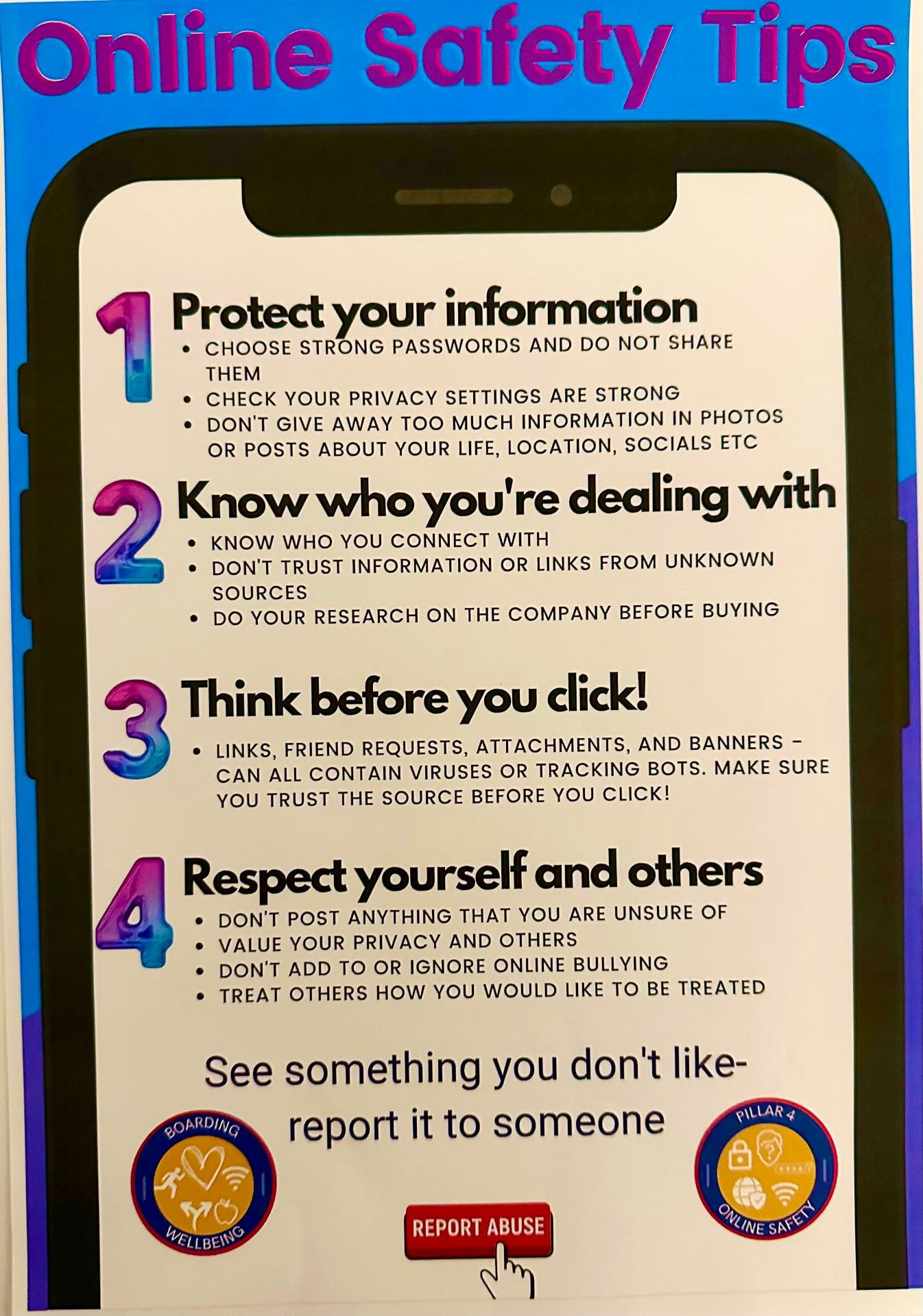As every month today, we had dinner at the house and the truth is that the girls appreciated it. Everything was very tasty.



As every month today, we had dinner at the house and the truth is that the girls appreciated it. Everything was very tasty.











This evening, the girls took part in the latest House Competition – the Talent Show. Great fun was had by all and it was fantastic to see the acts from all the other houses. Well done girls!

Most of the girls were on Exeat this weekend but on Sunday Bozhena did Community Service for her REACH hours. And we rehearse for the Talent Show.

Tonight in our Well-being Session, we focused on the take away Scams, security and identity theft.

There are lots of things you can do to keep yourself safe online. Think before you post:
1.Don’t upload or share anything you wouldn’t want your parents, carers, teachers or future employers seeing. Once you post something, you lose control of it, especially if someone else screenshots or shares it.
Don’t share personal details
2.Keep things like your address, phone number, full name, school and date of birth private, and check what people can see in your privacy settings. Remember that people can use small clues like a school logo in a photo to find out a lot about you.
Watch out for phishing and scams
3.Phishing is when someone tries to trick you into giving them information, like your password. Someone might also try to trick you by saying they can make you famous or that they’re from a talent agency. Never click links from emails or messages that ask you to log in or share your details, even if you think they might be genuine. If you’re asked to log into a website, go to the app or site directly instead.
4.Think about who you’re talking to.There are lots of ways that people try to trick you into trusting them online. Even if you like and trust someone you’ve met online, never share personal information with them like your address, full name, or where you go to school. Find out more about grooming.
5.Keep your device secure Make sure that you’re keeping your information and device secure.
6.Never give out your password.You should never give out your password or log-in information. Make sure you pick strong, easy to remember passwords.
7.Cover your webcam .Some viruses will let someone access your webcam without you knowing, so make sure you cover your webcam whenever you’re not using it.


We have also watched these videos regarding Social Media Safety Tips and how to prevent identity theft












Congratulations to our Varsity Girls Team for the third place .Well done !!




Amanda, Bianka and Maria Clara enjoyed a well deserved day of relaxation at Les Bains de Lavey , one of the biggest thermal baths in Switzerland.



